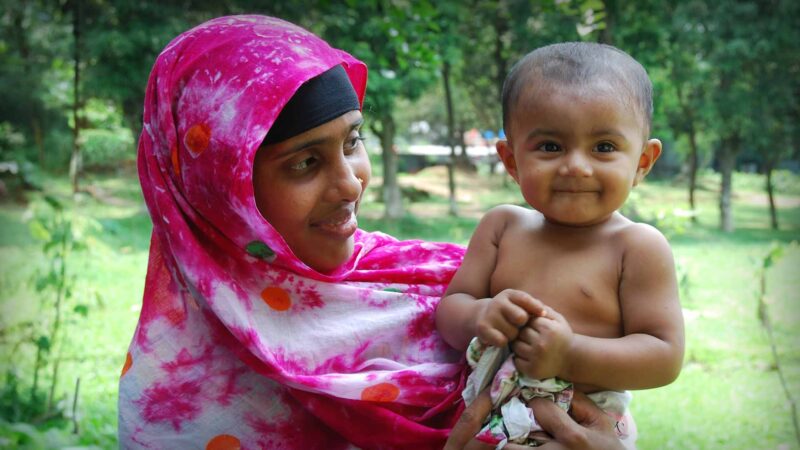LIVER CANCER BIOMARKERS, RISK PREDICTION & PROGRESSION
With
Dr Rodrigo Carlessi
Senior Research Fellow & Lead of Cancer Genomics Group,
Curtin Medical Research Institute,
Curtin University,
Perth, Western Australia
RESEARCHER PROFILE
Filmed in Perth, Australia | August 2025
Dr. Rodrigo Carlessi is an expert in Cancer Genomics and Molecular Biology, with an extensive track record in liver cancer research. He leads the Cancer Genomics Group within the Liver Disease and Regeneration Laboratory at the Curtin Medical Research Institute. He has an impressive publication record, with 43 manuscripts that have collectively garnered over 2,680 citations. His research leverages cutting-edge genomics and transcriptomics technologies, as well as long-read DNA sequencing, to explore mechanisms, identify biomarkers, and develop therapeutic targets in liver disease and cancer.
Dr Carlessi graduated from the Federal University of Rio Grande do Sul (UFRGS), Brazil, with a B.Sc. in Cellular and Molecular Biology in 2007, then joined the Weizmann Institute of Science, Israel, where he obtained a M.Sc. from the Department of Molecular Genetics in 2011. He further obtained a PhD in Molecular Endocrinology from UFRGS in 2016, prior to joining Curtin University in Western Australia as a postdoc in 2016. He undertook postdoctoral training in pancreatic beta cell biology and received awards from the Australian Diabetes Society and the Heart Foundation. In 2019 he was recruited to start and lead the Cancer Genomics group in the Liver Disease & Regeneration Laboratory. With nine years of postdoctoral experience, Dr Carlessi has held a prestigious Cancer Council of Western Australia Postdoctoral Research Fellowship from 2021 to 2024.
His recent work led to a groundbreaking discovery in liver cancer risk prediction, earning him national and international recognition, following publications in top tier journals including Cell Genomics, Science Advances and Nature between 2023-2025. This achievement has been highlighted by invitations to present at prominent events, including Oz Single Cell, the Australian Liver Cancer Experts Gallipoli Meeting, WYMM Melbourne 2025, the First International Conference of Liver Pathobiology: From Bench to Bedside in Crete (2023), and the Thomas Ashworth Symposium 2025. His work has also catalysed collaborations with prestigious global institutions, such as The University of Edinburgh, the University of California San Diego, Monash University, and the University of New South Wales.
Currently, Dr. Carlessi focuses on discovering novel biomarkers and developing innovative approaches to assess risk and monitor disease progression in liver cancer patients. Additionally, he is pioneering RNA therapy technologies to target oncogenic pathways, paving the way for the next generation of liver cancer diagnostics and therapeutics.
Source: Supplied
You Might also like
-
ROCK-induced early-onset bowel cancer progression
Professor Michael Samuel is a cell biologist whose research interest is in understanding how cancer mechanobiology influences the tumour microenvironment, thereby promoting tumour progression. He is Professor of Matrix Biology at the University of South Australia, Adelaide and heads the Tumour Microenvironment Laboratory at the Centre for Cancer Biology and the Cancer Mechanotherapies Laboratory at the Basil Hetzel Institute for Translational Health Research.
-
Anaemia guidelines updated after 50 years
Professor Sant-Rayn Pasricha is the Acting Deputy Director at the Walter Eliza Hall Institute of Medical Research in Melbourne, Australia. He is also a clinical haematologist at the Royal Melbourne Hospital and the Peter MacCallum Cancer Centre. From a young age, Prof Pasricha dreamed of becoming a doctor and found joy in learning about the human body and how to care for patients. After completing medical school, he developed a passion for working in low and middle-income countries, which led him to spend time working in East Timor, India, and Central Australia with First Nations communities.
-
Radiation therapy techniques and combination treatments for sarcoma
Professor Angela Hong MBBS, MMed, PhD, FRANZCR is a Professor at Sydney Medical School of the University of Sydney. She is a radiation oncologist and has been a member of the Multidisciplinary Bone and Soft Tissue Tumour Clinic at Royal Prince Alfred Hospital/Chris O’Brien Lifehouse for the past 15 years.
As a radiation oncologist located in Sydney, Australia, Professor Hong is focused on treating patients with bone and soft tissue sarcoma. And as a clinician scientist, her research focuses on developing innovative radiation therapy technique and combination treatments to improve the outcome for patients with sarcoma.

 https://orcid.org/0000-0003-0038-7391
https://orcid.org/0000-0003-0038-7391


